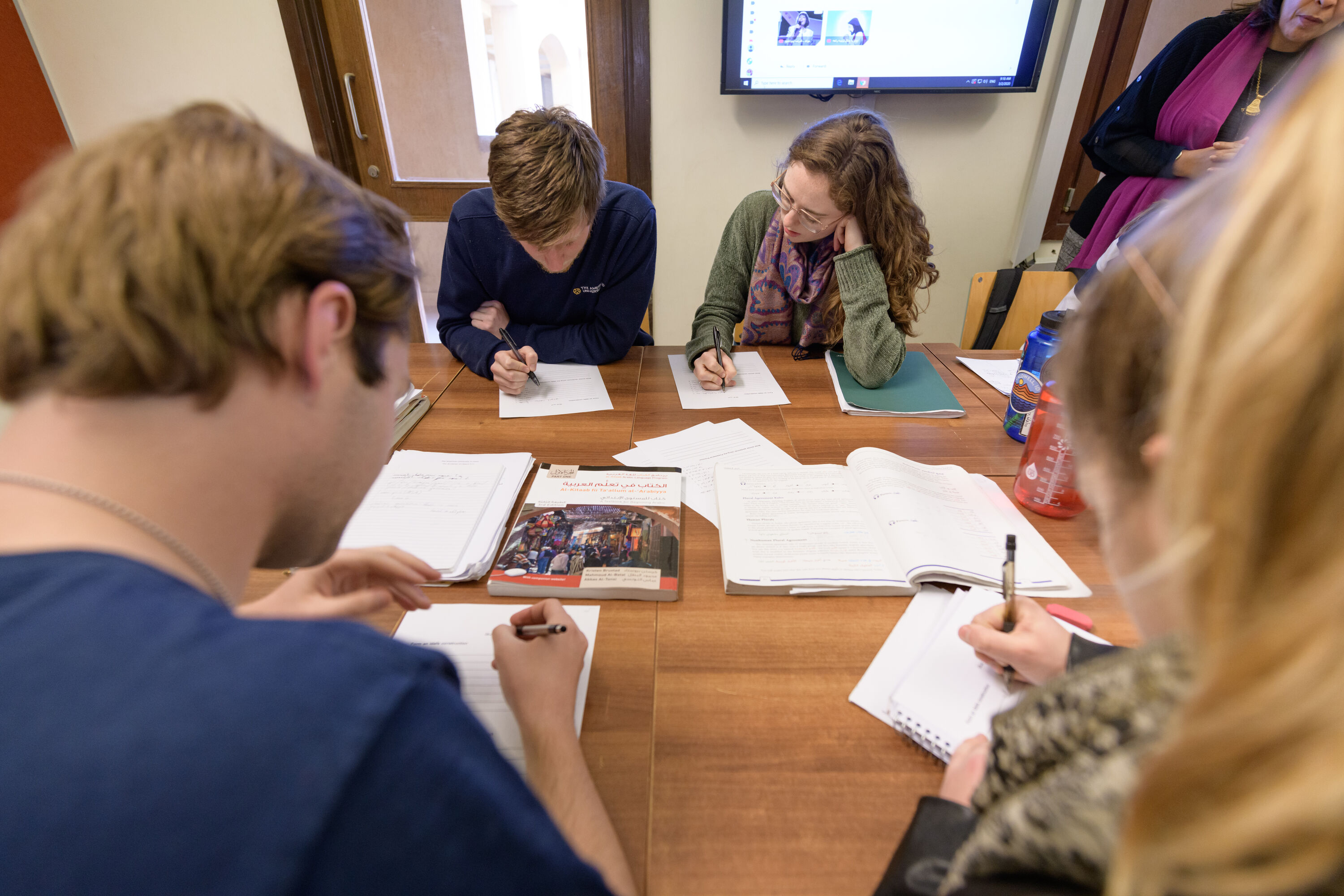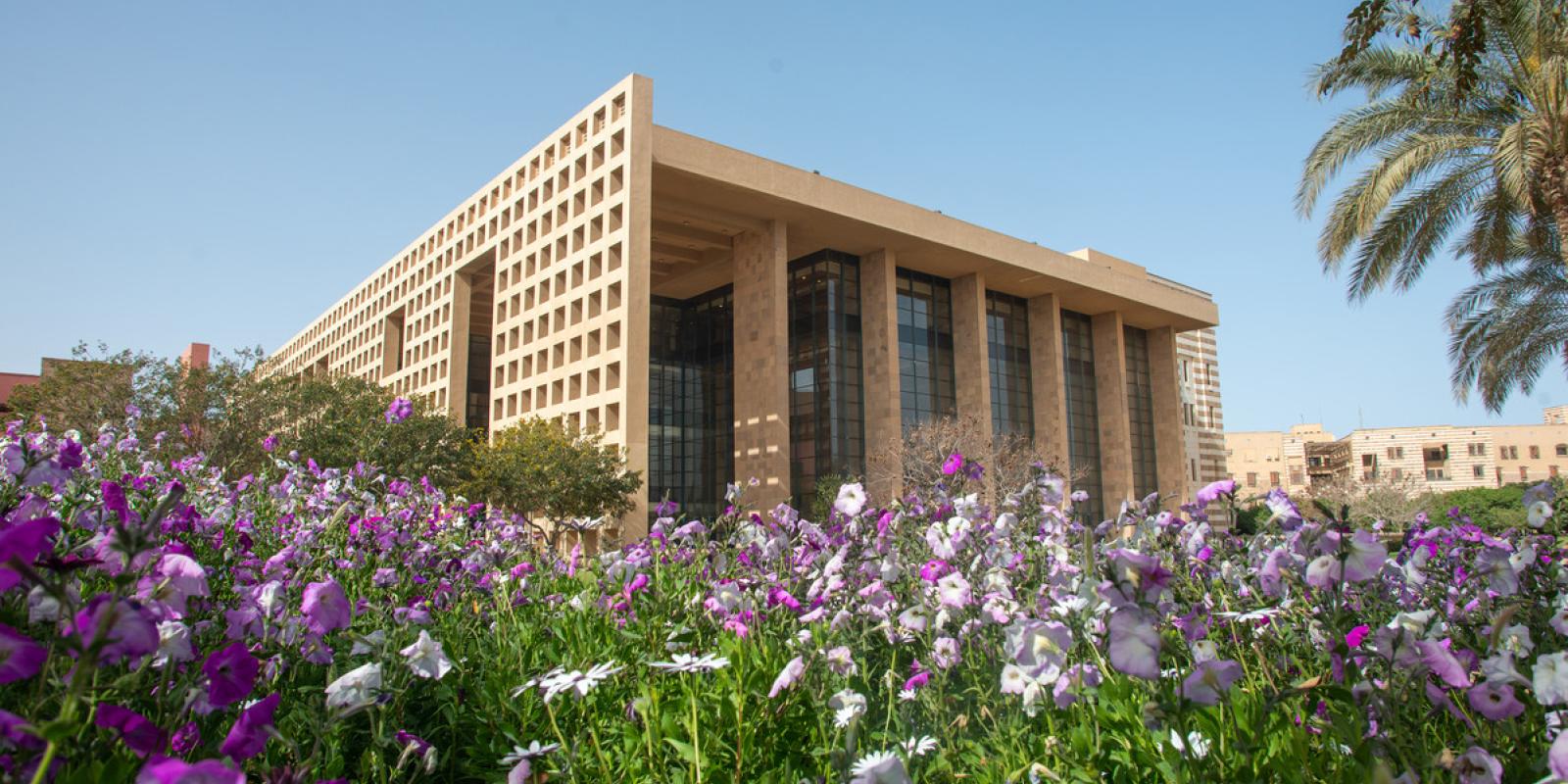Arabic Studies - MA
Program Overview
The MA program gives students a comprehensive academic and intellectual grounding on the development and contribution of Arab and Islamic civilizations. After successfully completing eight graduate courses, each student’s study culminates in the writing of a research-based thesis that contributes original findings within one’s field of concentration.
Concentrations
- Islamic Art and Architecture
- Arabic Language and Literature
- Middle Eastern History
- Islamic Studies

Degrees and Admission Requirements
To be eligible for the master of arts degree in Arabic Studies the student must reach an acceptable level of proficiency in Arabic.
Many students continue to develop their Arabic language skills while studying for the Master’s degree.
Learning Outcomes
Cairo has an unparalleled concentration of extant Islamic monuments and rich archives and museums. Living and studying in a lively capital in the Middle East with a wealth of cultural offerings provides students the opportunity for personal and academic growth.
Islamic Art and Architecture
For over fifty years, the Islamic Art and Architecture program has been engaging students in the material culture of Islamic civilizations through a range of art-historical and theoretical perspectives. Our breadth of course offerings and access to the monuments we teach is unique among English-language programs in the field. The program strongly benefits from the university’s location as students often connect their research with physical sites in Cairo or elsewhere in the MENA region.
Arabic Language and Literature
The program offers classes on both classical (500-1850) and modern (1850 to present) Arabic literature including seminars on topics as diverse as the development of prose, the tradition of classical Arabic poetry, the Arabic rhetorical and literary-critical tradition, modern Arabic novels, Arabic drama, Arab cinema, issues in literary and cultural translation and colloquial and folk Arabic literature.
Middle Eastern History
The program offers classes and seminars on the history of the Arab Middle East and greater Islamic world from the rise of Islam to the modern period. Topics covered include: the rise of Islam and Arab conquests, Islamic political theory, economic, social and cultural history of the Mamluk and Ottoman empires, International and Red Sea trade networks, war and diplomacy, literacy and book culture, protest and dissent in Middle Eastern history, and colonialism and nation-building in the modern Middle East.
Islamic Studies
The program offers lectures and seminars on topics such as Qur’anic Studies, Hadith, theology, Islamic jurisprudence, legal reform, Sufism, and Islamic philosophy. The specialization covers both the canonical works in Islamic theology as well as recent scholarship and debates.
Career Paths and Practical Experience
The MA in Arabic Studies program is ideal for students who plan to pursue a career in academia, and it will also prove invaluable to students who want to go into diplomacy, government service, journalism, heritage management, education and similar fields.
Fellowships
In addition to the university's fellowships, some funding opportunities are particularly relevant to students in the Department of Arab and Islamic Civilizations
